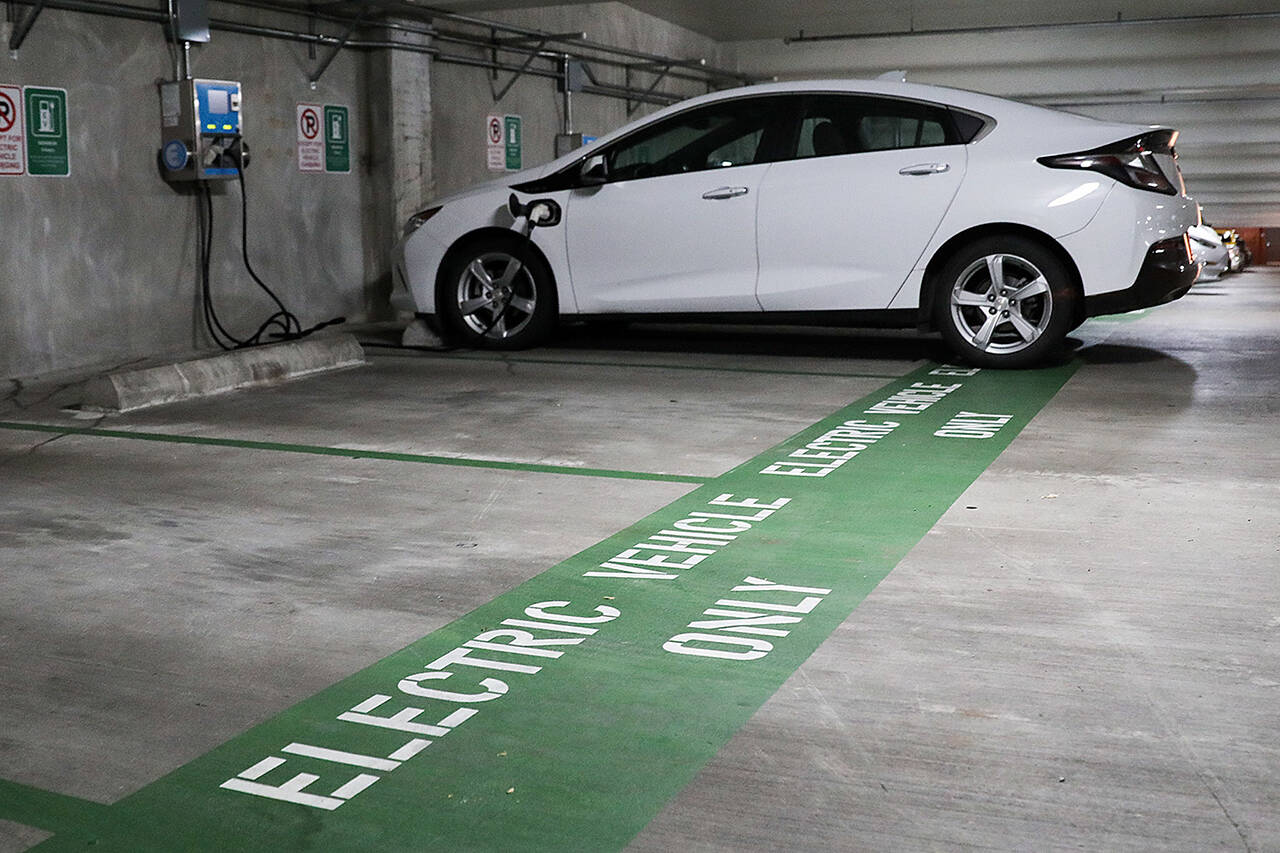Who is ready to RUC and roll?
RUC, the acronym for a road usage charge, has been studied and under consideration for years by state officials. The pay-per-mile system could supplant the state’s current $0.494 per gallon gas tax, which is on top of the federal rate of $0.184 for standard gas and $0.244 for diesel. Higher gas prices haven’t meant more tax revenue for the state.
More fuel efficient vehicles and ones that don’t use gas have hit revenue that maintains roads. But Washington’s public roads still are used and seemingly more year over year, with over 62 billion vehicle miles traveled in 2019. That number dipped 14% during the pandemic last year but otherwise grew annually, according to Washington State Department of Transportation figures.
“Right now the gas tax is just not equitable,” Washington State Transportation Commission Executive Director Reema Griffith said. “We’ve evolved now to where not all users are paying, some users are paying, and everybody is benefiting from that.”
The Washington State Transportation Commission plans to submit updated RUC research about equity and vehicle mileage to the Legislature next month. Lawmakers have yet to approve the implementation. Griffith said the program likely needs about two years to get established.
But some transportation commissioners worry the transition from gas-powered cars to electric battery ones could outrun the new charge if lawmakers don’t act soon.
“It seems like it’s accelerating rapidly, but our approach is taking on the same speed kind of as we estimated in the beginning,” Commissioner Jerry Litt said during a meeting last week.
The state has studied a RUC for most of the past decade. A nine-month pilot program in 2018 had about 2,000 people test different reporting methods of a per-mile system.
Privacy concerns remain, as pointed out by the Washington Policy Center and KIRO Radio’s Chris Sullivan this week. One mileage reporting possibility is for auto manufacturers to supply mileage from a vehicle’s computer. Newer vehicles already have this capability, which is used for some types of insurance. But it would require the companies’ participation, consultant Travis Dunn said.
Participants who tracked their mileage over a year in a 2019 pilot preferred reporting mileage based on an odometer check. Of the options available then, the ones that didn’t have GPS tracking were preferred, despite losing some accuracy in billing without verification of out-of-state and private roads.
Electric and zero-emission vehicles don’t pay a gas tax because their drivers don’t need to visit the gas pump. Instead their owners are subject to a $150 electric car fee and $75 transportation electrification fee for registration tabs.
Under the commission’s RUC recommendations, those fees would be repealed.
The commission’s 2020 report recommended a phased rollout of the RUC that envisioned things starting in 2023. Now, the earliest it could be in place is 2024, Griffith said.
“The longer the legislature waits on this, the more panicked it’s going to be when we get to that switch,” she said.
Phase one includes electric vehicles, hybrids, and state government vehicles. Washington had over 84,000 electric and plug-in hybrid vehicles registered, according to data from the state Department of Licensing.
That’s a small part of the over 7.3 million total vehicles registered in the state two years ago, according to Federal Highway Administration data.
More companies plan to produce more electric vehicles or phase out gasoline engines entirely.
A specific model, the Ford F-150 Lightning, has the commission’s interest. The gas engine version has been the country’s top selling truck for decades. Its electric iteration expected next year could spur an electric vehicle shift faster than previously expected.
Ford stopped taking $100 refundable deposits after collecting 200,000 earlier this month.
Longer ranges, lower costs and rebates or tax incentives for battery electric vehicles makes them more appealing, Griffith said.
More vehicle categories, like those with high gas mileage ratings, would be added in following years until all new vehicles are subject to the RUC by 2030. Older vehicles that use gas would be phased in through the 2030s, Griffith said.
“Every couple of years you grab a bigger portion of the fleet and bring them in,” she said.
Gov. Jay Inslee has proposed using $100 million a year to encourage people to buy electric vehicles.
Griffith isn’t confident the Legislature will vote on the RUC during the short session that begins in January. But the commission is studying concepts of the RUC in “targeted” pools next year and beyond. They include: self reporting mileage as part of registration renewal for tabs; flexible payment plans; telematics-based reporting; manual mileage exemptions for out-of-state driving; income-based discounts; alternative invoice designs; research into the number and duration of unregistered vehicles on the road; vehicle transactions such as insurance payments, oil changes; and a mock standardization committee.
Have a question? Call
Talk to us
> Give us your news tips.
> Send us a letter to the editor.
> More Herald contact information.

























